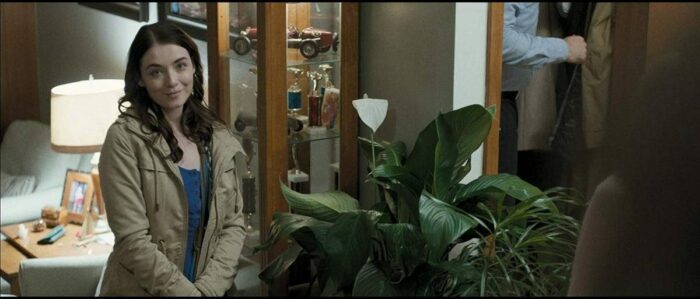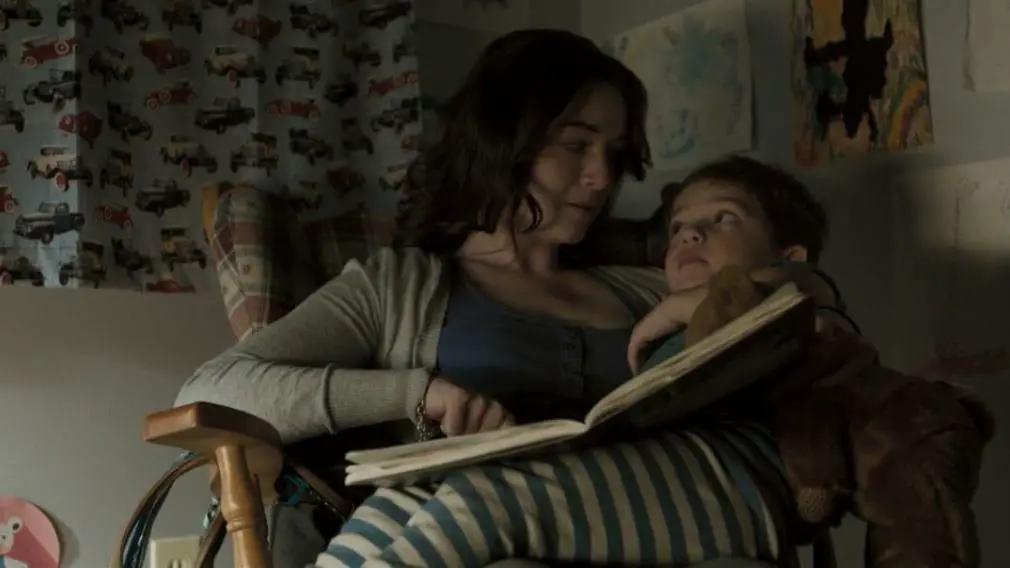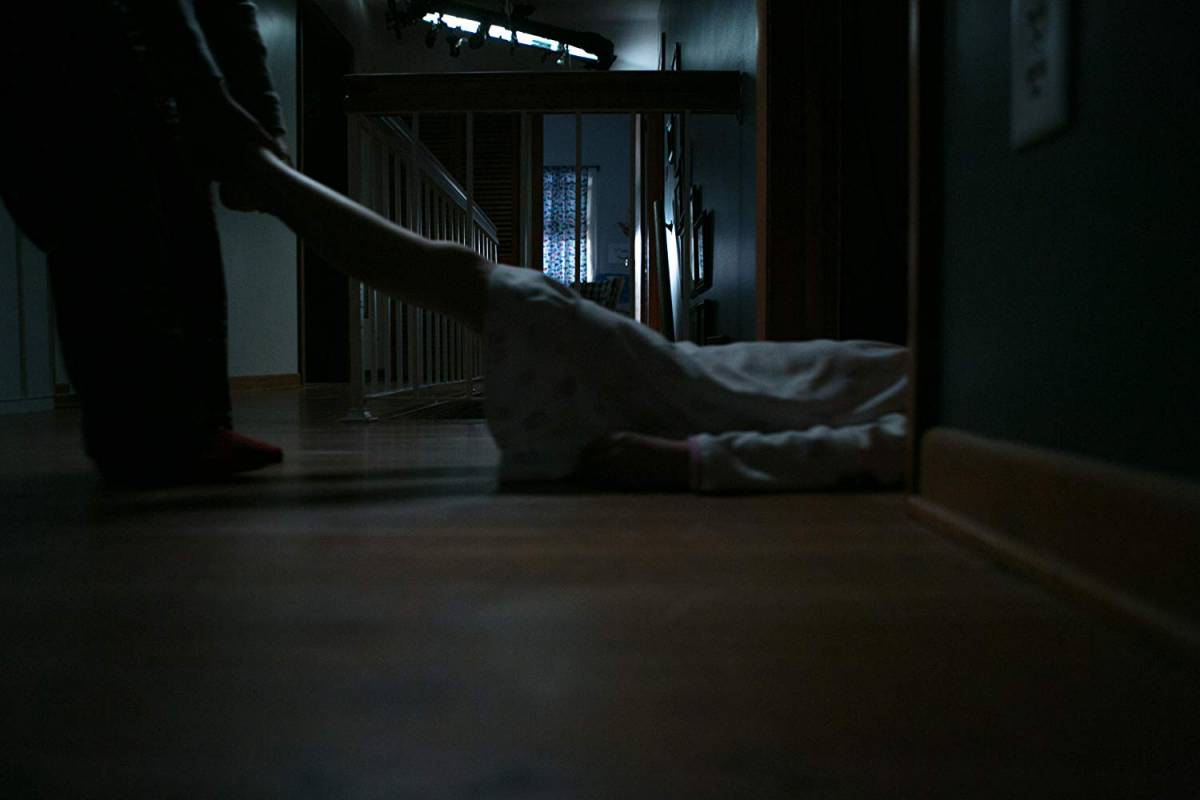I’ve never been as scared of monsters as I am of one person ignoring the rules. We all wake up and assume gravity will hold us to the ground, that air will fill our lungs, and that the people we meet, by and large, have all agreed to walk through life abiding by the same laws as us. Take away any of those assumptions and watch the entire human machine sputter and smoke like a bomb.
The movies set inside these small, social explosions terrify me precisely because they’re not about total, gory destruction, but about one thing changing, a Jenga block pulled out at just the wrong speed, and the tower wobbling in its wake. My nightmares are movies like Joel Edgerton’s The Gift, Roger Michell’s Enduring Love and Michael Thelin’s unsettling babysitter horror film, Emelie.

A couple hires a babysitter. When the doorbell rings before their dinner date, a girl, Emelie (played by Sarah Bolger) shows up and must be that babysitter, so they leave their three children with her. It is what the titular Emelie does with this trust that helps the film stand out. This little oversight from the parents subjects their children to a night of grounded, realistic, psychological horror.
At the heart of the film is Sarah Bolger’s Emelie. She isn’t snarling or cackling or even wryly detached like the more recent McG antagonist in The Babysitter. She’s human, wandering and fumbling throughout the house for ammunition, tools with which she’ll dismantle the three children’s lives. Her placid expression and haunted, drugged expression denote a woman completely dissociated from her actions. Something happened to her and left a crater behind.
Opposite this are brilliantly believable performances from the three children, particularly the two older siblings Sally, played by Carly Adams, and Jacob, played by Joshua Rush. In one harrowing scene early on, Emelie introduces Jacob’s pet python to a disturbing new food source and the agony on Sally’s face is palpable and heartbreaking. Joshua Rush brings to Jacob an ongoing, catastrophic civil war of hormones, childhood, and the growing need to protect his family from Emelie. Emelie routinely taunts Jacob with her sexuality and his desire to be a grown-up while forcing him to exist in the vulnerability of his age.

Emelie deals with harsh topics through the prism of one woman’s psychosis. We see how the assumptions that ground the central family are easily unmoored by one woman’s work, one woman’s decision that her needs supersede all others.
Emelie suffers from its hyperrealism, at times, however, as each scene is a little tense due to the villain’s apparent fragility. This movie is ripe for the slasher-victims at home to pick apart with endless protestations of “If I was there…” It also suffers from a predictability problem halfway through, something that would be kryptonite for a less textured or less complex thriller.

Thanks to the inventiveness of Emelie’s torture techniques and the unique dynamic between the children, Emelie overcomes these otherwise crippling flaws and becomes a different kind of movie. For those that guess the plot, it becomes a dread-inducing horror film, for those that don’t, it’s an edge-of-your-seat thriller.
Regardless, its willingness to explore taboos and honestly depict a home invasion that needles at the edges of the laws and rules we all trust each other to follow make for one of the more memorable home invasion films of the last few years.


